Bible Teaching and Christian Life
Bible Teaching and Christian Life
There were some people living in Corinth in New Testament times who were sceptics. They did not believe in any other world than this world, they saw no evidence for any other life than this life, and out of this belief they formed this proverb:
“Let us eat drink and be merry for tomorrow we die.”
They lived lives which were wholly sensual and transient and that way of life arose directly out of their philosophy.
By contrast, the Bible records the lives of many people who were transformed by the things they came to believe, people like the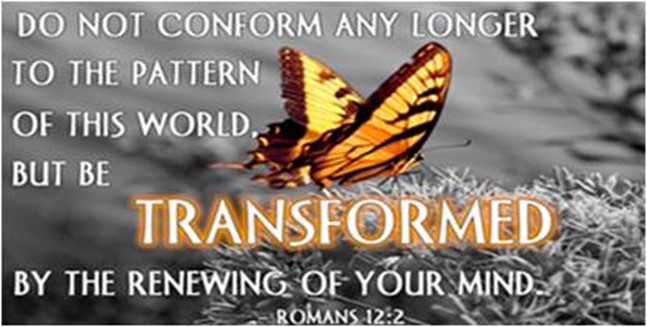 apostle Paul.
apostle Paul.
He started out as someone who hated the very sound of the name of Jesus of Nazareth and was determined to persecute his followers and have them executed, if need be.
He came to understand differently, however, and became an ardent follower of the Lord Jesus, eventually being executed himself because he would not renounce his beliefs. So what is it about the teachings of the Bible that might change the way we think and thus the way we feel and act? We will look at some of the key teachings of the Bible to test this out.
The Bible Doctrine of Sin
The Bible says that Sin is lawlessness.
It is a clear departing from the will of God. It is coming to the parting of the ways and choosing the way which is wrong. When sin is defined as lawlessness the Bible means that in all this lawful world only one thing is lawless – that is Man. Every other created thing is obedient to the law which has been put upon it by God.
Upon every tulip there is the law of the tulip and when it blossoms forth in all its glory it is obedient to that law, and it does what God intended it to do and therefore gives him glory.
The same is true of every eagle – when it hovers in the sky upon its great wings and hovers over its young, it does that which is true to the law of the eagle and it gives glory to God.
Upon Man there is the law of Manhood, once perfectly revealed by the Man of Nazareth and now enjoined upon those who are made in God’s image. When men turn from that high vision of Manhood and dishonour their nature they do that which is against the law of Manhood – they commit sin and are degraded, for they give God no glory.
Sin is Lawlessness
In all this lawful universe, only man is lawless. This is Sin. It is something with which God cannot compromise.
The awful purity of God does not permit Him to regard sin as something which can be forgotten and overlooked.
It is an obstinate and painful interloper in the world.
Now suppose a person does not believe or accept the Bible doctrine of Sin. Suppose he or she is ready to accept the popular view – that it is after all merely a maladjustment, a failure of education, a lapse, not an offence against God but in some way almost a blessing in disguise. Surely, a person believing this will have his behaviour affected when he is faced with temptation. Under such circumstances and mastered by such a belief – sin becomes easy.
When someone submits to the Bible doctrine of sin, to that extent he or she is fortified against it. He fears the subtlety of sin and avoids the occasions of temptation. When he is tempted he is held back by a realisation of what sin really means.
Case Studies
❖Joseph
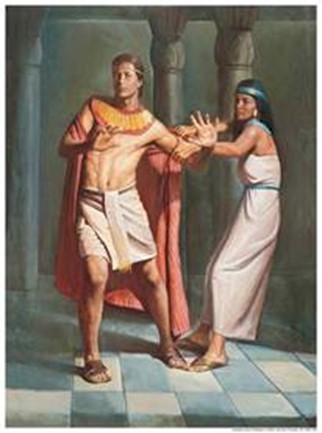 A good example of this is the case of Joseph being tempted in the house of Potiphar by Potiphar’s wife. She tempted him to commit adultery and I want to remind you of Joseph’s attitude in the presence of the ruthless temptation of this frustrated woman.
A good example of this is the case of Joseph being tempted in the house of Potiphar by Potiphar’s wife. She tempted him to commit adultery and I want to remind you of Joseph’s attitude in the presence of the ruthless temptation of this frustrated woman.
He said:
“There is no one greater in this house than I, nor has he (Potiphar) kept back anything from me but you, because you are his wife. How then can I do this great wickedness, and sin against God?” (Genesis 39:9).
Joseph knew that not only was it a sin against his master Potiphar but much more it was a grievous sin against his God who had kept and nurtured him all his life. So he fled and got out. It is a splendid example of the right doctrine of sin producing in Joseph the proper and pure life in the face of evil.
❖David
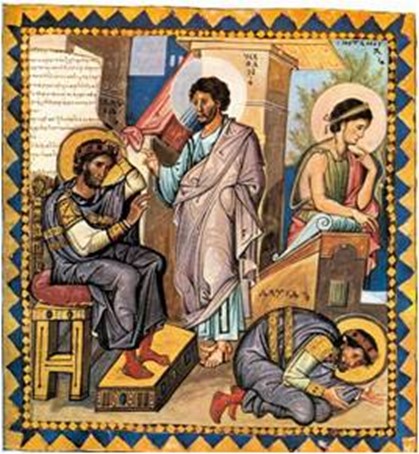 When King David committed adultery and murder he came to repentance at last by a realisation of what Sin really was, thus he said to his God:
When King David committed adultery and murder he came to repentance at last by a realisation of what Sin really was, thus he said to his God:
“Against You, You only, have I sinned, and done this evil in Your sight— that You may be found just when You speak, and blameless when You judge” (Psalm 51:4).
The very same principle which fortified Joseph brought David to his knees In contrition. Thus we see the combined effect of Bible teaching and Christian life.
God’s Kingdom
The Bible doctrine of the Kingdom of God means the absolute transcendence of God over all the world: the fact of His government over all things and its eventual establishment on earth in place of the government of men, with Jesus Christ as its undoubted King. This is a vital doctrine for Jesus once said:
“Seek first the kingdom of God and His righteousness, and all these things shall be added to you” (Matthew 6:33).
The first step in seeking that kingdom is to submit to its king, believe in its laws, and obey its government – and where these things exist in a person’s life, the master principle of the Kingdom of God is established.
Now therefore those who believe in the coming Kingdom of God upon the earth, at the second advent of Jesus Christ, constitute a people whose real vocation and real destiny begins in the age to come. Therefore their attitude to the present life will be regulated by that fact.
First of all, they will, or ought to be, people in whom, even now to some extent, the principles of the Kingdom of God are being realised – that is love, joy and peace. Through them the kingdom values are being manifested to those around them and by whom God’s literal kingdom and its coming is being preached among men.
They also will be people who know themselves to be pilgrims in this world, passing through it to another and a better society – the world to come on earth. Their master passion, therefore, will not be the acquisition of knowledge, the pursuit of pleasure or the accumulation of wealth. They will be looking through these external things to the spiritual. They will hold with light hands the things of this world because they are citizens of another. They will be ready to render to Caesar the things which are Caesar’s, but will be careful to render to God the things which are God’s (Mark 12:17).
Their allegiance to earthly governments has to be qualified by the fact that they have sworn allegiance to their King – ‘the King of Kings’. But they will be ready always to succour the needs and seek to alleviate the pain of their neighbours, because of the doctrine of gentleness and service which they have received by word and example from their Lord.
Now let me emphasise that this way of life arises distinctly and conspicuously out of the doctrine of the Kingdom of God, properly understood.
People do not behave in this way without some compelling reason and the reason is that the King has met them and taught them and called them to his Kingdom.
The Lord Jesus used these words to call men to his discipleship: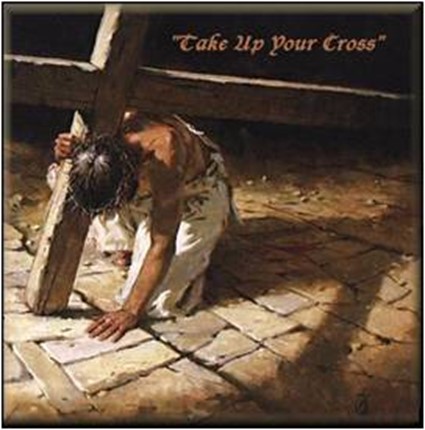
“Whoever does not bear his cross and come after me cannot be my disciple … whoever of you does not forsake all that he has cannot be my disciple” (Luke 14:27,33).
Notice that Jesus said “cannot” – not “may not” or “it will be difficult”, but “cannot”. This is a hard teaching and there were many who turned back when they heard it. But the teaching of the King is imperative – it means that SELF and SELF-INTEREST make it impossible to be a disciple when other loves and other forces interfere and intervene and breed dissatisfaction, and cause difficulty.
Tyranny
The truth is that Self comes every day seeking for preference and asking to be put first. Self is a tyrant and men standing by themselves are slaves, without consent sometimes, but slaves nevertheless. A man once said:
“What I am doing, I do not understand. For what I will to do, that I do not practise; but what I hate, that I do” (Romans 7:15).
That is the overmastering power of self. It is the confession of a man deeply conscious of his appalling weakness in the presence of self.
When we see the matchless purity of the life of the King; when we see him wholly submitted to the will of God, never once subverted from the path of obedience – his purity has the effect of mocking our own impotence.
It is no good telling me that Jesus is the great example, because I have no power to match his success. I am undone at the fibre of my being. My achievements are utterly short of my aspirations. But the great truth is that we are not saved by example; Jesus is not just an exemplar, he is a redeemer, and a saviour. Through his great sacrifice we are not only freed from the penalty of sin, but at last we are freed from its power. If this is not so then there is some part of the Bible which is false.
Christ the Leader
The New Testament teaches us that Christ is the leader of those who are being saved by the power of God and that power is in the cross of Christ:
“For the message of the cross is foolishness to those who are perishing, but to us who are being saved it is the power of God” (1 Corinthians 1:18).
Notice it is “the message” – what is being preached – which has the power and that we are either “being saved” or “perishing”. And the writer to the Hebrews explains a little more when he says:
“How much more shall the blood of Christ, who through the eternal Spirit offered himself without spot to God, cleanse your conscience from dead works to serve the living God?” (Hebrews 9:14).
A Clean Conscience
The good news is that Christ is not leading into the Kingdom a group of people who are broken failures, but men and women who have been able to escape the tyranny of self and have come, of their own volition, to serve the living God. For it is our consciousness that determines our conduct and our conduct forms our character. If my consciousness is low, my conduct will be low; if my consciousness is high, my conduct will be higher.
What regulates your consciousness?
What cleans your conscience?
What you believe and what you have faith in.
It follows that if you believe in the saving power of Christ to change your life it could happen. But if you deny it it will never happen. This is a superlative example of Bible doctrine and Christian life. The apostle Paul, who had struggled manfully against self, and had failed when he sought to succeed in his own strength, could later say:
“Thanks be to God, who gives us the victory through our Lord Jesus Christ” (1 Corinthians 15:57).
That faith is the inspiration of Christian conduct.
Christ is Risen!
The final example of how teaching affects behaviour is the vital and central doctrine of the resurrection of Jesus Christ from the dead. In Luke chapter 24 we read of two people who were sauntering out of Jerusalem on the Emmaus road – they were sad, sorry and dejected. They believed that their Messiah was dead and buried whilst they had hoped to see him reign in triumph. Notice how their lives are in the past tense. They speak to the stranger who joined them in this way:
“Jesus of Nazareth … was a Prophet mighty in deed and word before God and all the people … we were hoping that it was he who was going to redeem Israel” (Luke 24:19–21).
Then the stranger they have met on the road flings back the shutters and opens to them the Scriptures, so that they feel their hearts burning within them. He gives them a new interpretation of familiar things – the old
doctrines in a new light – out of the Scriptures of truth. They realise that he – the Lord Jesus – is the Messiah risen from the dead.
They sauntered out of Jerusalem because they thought it was all over; they go back at the double because they realise it is only just beginning.
The apostle Paul in the fifteenth chapter of 1 Corinthians is uncompromising about the effect of the
resurrection of Jesus. Either he is risen from the dead, he says, and can be known, or else he is a failure and we have all been deceived.
There is no middle course. If the doctrine is false we are still in our sins, the dead in the graves are dead forever and we are found to be false witnesses and the most to be pitied.
Everything depends upon the truth of this great doctrine. For what good is a kingdom if the king is just a corpse?
How can we hope for deliverance if the deliverer is dead? How can we pray for help if the advocate is unheeding?
But when this great doctrine is believed and trusted – see what it does to those who believe. Think of the apostle Peter as an example. Before the resurrection he was fearful and craven, but now he is standing up within a stone’s throw of the empty tomb and boldly laying the blame for the King’s murder upon the rulers at Jerusalem. He cries in a voice full of brave confidence:
“Therefore let all the house of Israel know assuredly that God has made this Jesus, whom you crucified, both Lord and Christ” (Acts 2:36).
Not in Vain
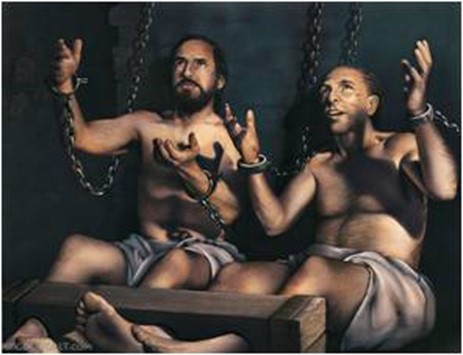 Two men are in the stocks at Philippi. Their bodies are in chains and their backs torn with scourging and it is midnight – but they are singing and they are singing the song of the resurrection.
Two men are in the stocks at Philippi. Their bodies are in chains and their backs torn with scourging and it is midnight – but they are singing and they are singing the song of the resurrection.
As we already recollected, the Apostle Paul met the resurrected Jesus on the Damascus road and it changed his whole life. From being once a persecutor he became one of the great heroes of the Christian faith and gave his life in the cause of the king.
These men and women of the infant church were changed and energised by the great doctrine of the resurrection.
And it still happens. Men may laugh, but we shall proclaim our faith in the resurrected Jesus. Our preaching is not vain. Thank God our sins are forgiven. The dead are only asleep awaiting the shout of the Archangel and the trumpet of God. The Lord is coming in glory and power. We are not pitiable.
Laugh at us if you must, but do not pity us. We believe we have discovered a joy which has eluded all others.
Perhaps we do not sing about it as joyfully as we ought but it is true and it is real. Jesus is alive now and is the High Priest of the Universe. His love is stronger than death and mightier than the grave and it is still making heroes today. All over the world and every day his men and women venture forth in his name on the high and holy enterprise of doing his business and seeking his will. Some are safe and sound; others are risking their lives for his cause. Why do they do it? Because they have been illuminated and invigorated by the great doctrines of the Word of God – in which they trust and by which they are inspired.
So this is our appeal. If you mean business about your religion; if you are earnest about your spiritual life; if you really want to find joy and hope in this hopeless world, then let the revelation of this Word of God become your master passion.
Trust it, believe in it with all your heart – seek to make it something that is central in your life. Do not be insulted but I am compelled to say that without it you are impoverished and utterly inadequate. Believe in it and you have discovered the secret of life.
But there is no middle course. In the end you will believe in it and live, or you will reject it and perish. And about that you have no argument with me – it was Jesus who said it. I can say no more.
By Dennis Gillett
![]()

